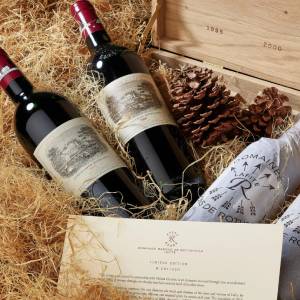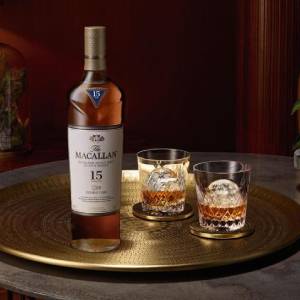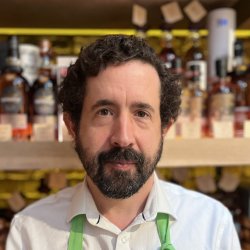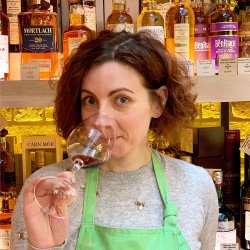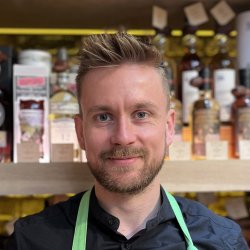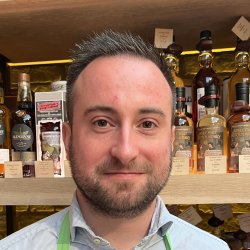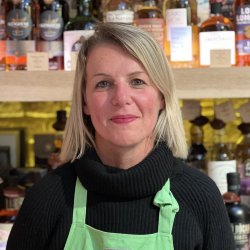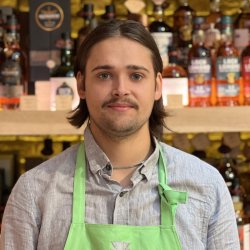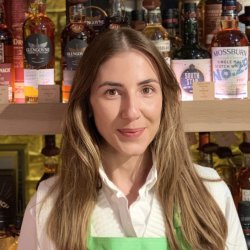Hedonism Meets... Mark Reynier
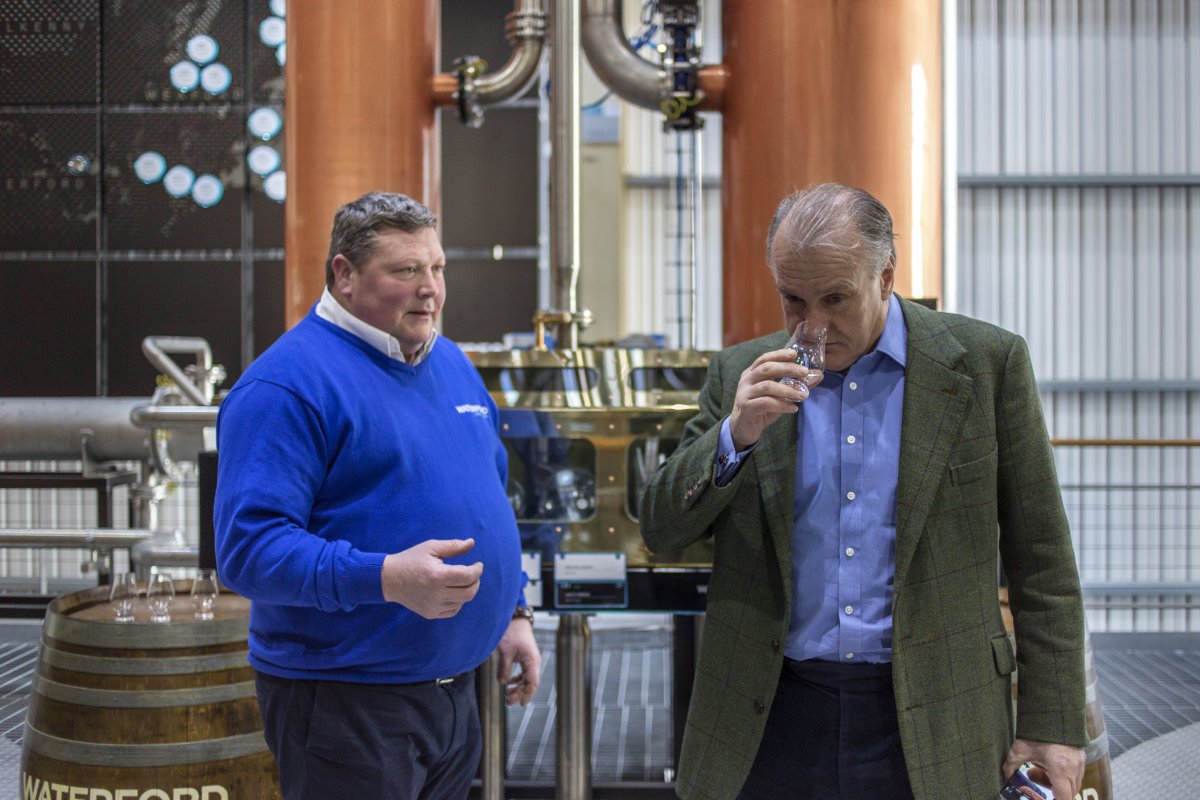
Mark Reynier is a busy man. Following his triumphant reopening and revitalisation of closed Islay distillery Bruichladdich in the 2000s, Mark set his sights on Irish single malts founding Waterford on the south east coast of Ireland and distilling his first spirit there in 2015. The project represents a return to the roots of Irish whiskey-making, shifting the focus from the stillmen who make the spirit to the farmers that grow the barley. We sat down with Mark to talk terroir, the importance of choosing good barrels and the dangers of migratory birds.
Mark, thanks so much for your time. Waterford is quite the project with a lot to discuss! Can you give readers an overview of what the ambitions of Waterford are and what you’re doing differently?
Having spent half my career in the wine trade, the first half was spent often in the vineyards of Burgundy and around France. I witnessed the renaissance of terroir, lost to the post war cooperative drive. The organic and biodynamic movements were taking off, the importance of wood both balance and provenance understood, investment in modern equipment and stainless steel, understanding the science, canopy management. It was a truly transformative era. And I was there. As today’s malt whisky’s renaissance occurred around the same time, I wanted to apply what I had experienced in Burgundy to our own national drink: surely I could do a better job…
"It should be all about the barley!"
You’ve put barley front and centre – each bottling states the name of the farm from which the barley was sourced and the website gives a phenomenal amount of detail, even down to the soil types at each farm. What inspired you to take this approach?
There are only three legal raw ingredients for Malt Whisky. Yeast, water and barley - and it’s the barley that makes it the most flavourful spirit in the world. So it’s clear to me that barley should be the focus: it should be all about the barley! My initial efforts at terroir while at Bruichladdich were encouraging, but we lacked at that time the resources, the logistics and frankly the desire (there was a lot of traditional baggage). At Waterford I had the opportunity to start with a blank canvas, with extraordinarily modern equipment, the necessary resources, comprehensive logistics - and above all a team with the overriding drive to make it happen. Waterford is 210 miles due south of Islay, thew same latitude as Cambridge. The climate is milder, good rainfall off the Atlantic, and greater sunshine: the ideal growing conditions for the finest barley in the world. In essence - I followed the barley. Barley is sown 6 to 8 weeks earlier than Islay and is therefore harvested in late July early August well before the autumnal gales blow it down and migrating geese hoover it up.
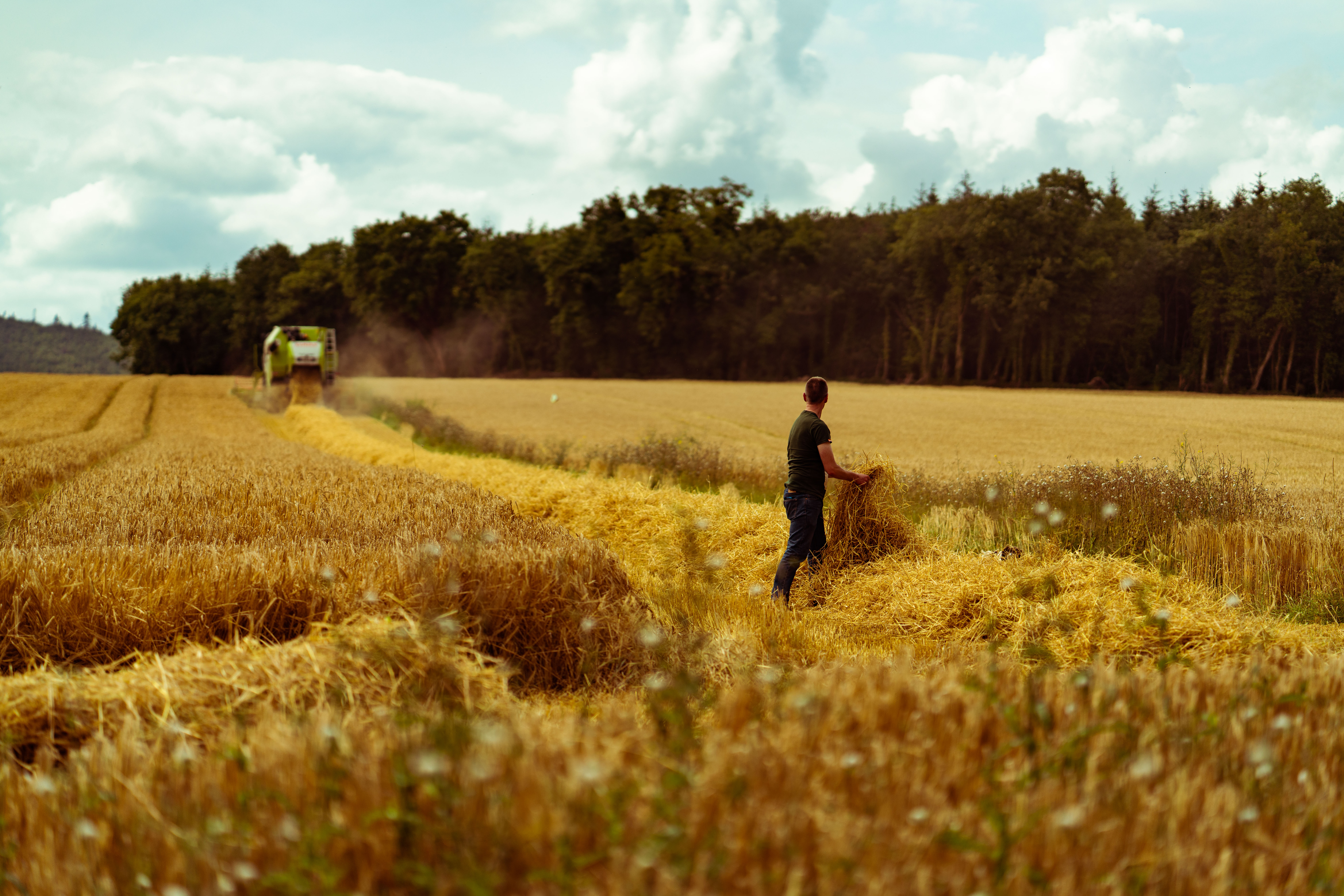
There’s a lot of discussion about “terroir” and the Waterford bottlings. Fans of wine will be familiar with this concept, but it might be a little more alien to whisky drinkers – can you explain the concept of “terroir” in relation to the whisky you making at the moment?
Unfortunately there is no appropriate translation of terroir in English, goodness knows I’ve looked for one. Terroir is basically the three dimensional influence of micro-climate, soil, topography on the growth of a plant be it the vine or the barley. Altitude, orientation, bed rock, etc. also play their part. Terroir is not about a manufacturing process or place or person; it is not a distillery or winery; vigneron or farmer. It applies only to the plant, and more importantly its growth and how that impacts ultimately on the fruit - the grape or grain. All I have done is apply the same well established principal from one plant to another and from wine to whisky. The fine wine world accepts the concept as readily as the bulk wine world and whisky industry reject it.
"It’s not just me that says terroir has an impact - the science does too!"
But just because industrial production and its generic commodity provisioning policy precludes any terroir effect - that doesn’t prevent its existence; as we have demonstrated at Waterford and with the first proof of terroir in whisky peer reviewed paper.
It’s a question of whether one wants to have its impact or not. We do to the extent that we have 40 farmers growing 130 tons each of barley that we can track and trace from field to every Single Farm Origin bottle, each exhibiting a different nuance of flavour both from harvest to harvest and terroir to terroir. What we had observed from tasting is now demonstrable graphically and statistically by analysis with the very latest equipment. It’s not just me that says terroir has an impact - the science does too! That’s why we encourage consumers to compare and contrast the SFOs and see for themselves.
As mentioned, it’s clear that barley plays a huge role in the production of Waterford, but can you talk a little about wood management at Waterford?
Wood is another area of whisky that I find interesting, and sad to say, has been so badly abused for the last fifty years at the altar of economy. It is necessary to understand the role of oak casks. Yes they are manoeuvrable containers and equally a useful size for storage. But so is plastic, and much cheaper. But oak can also add its own flavours - lignin, vanillin and tannins - to the maturing spirit assuming they haven’t already been leached out by excessive previous use, which is unfortunately the majority of the time. Sadly these barren barrels, bereft of any oak contribution are all too prevalent resulting in the last chance saloon rush for some external contribution resulting in some rather clumsy ‘finishes’.
"It’s expensive and it takes time, there are no short cuts in my book"
Finishing, which started out as a constructive necessity has now become a marketing crutch. At Waterford we do not ‘finish’; we start with the right quality oak in the first place. We invest 30% of our cost of production in a portfolio of uber-premium quality oak because from my previous experience I strongly believe in a premium, balanced wood policy from the outset. Remember, too, the most important contribution of the cask is the micro-oxygenation through the oak of the original flavour compounds liberated from the barley during fermentation. This maturing of the original spirit’s flavours, together with the extracted oak flavours, is what we are looking for. It’s expensive and it takes time. There are no short cuts in my book.
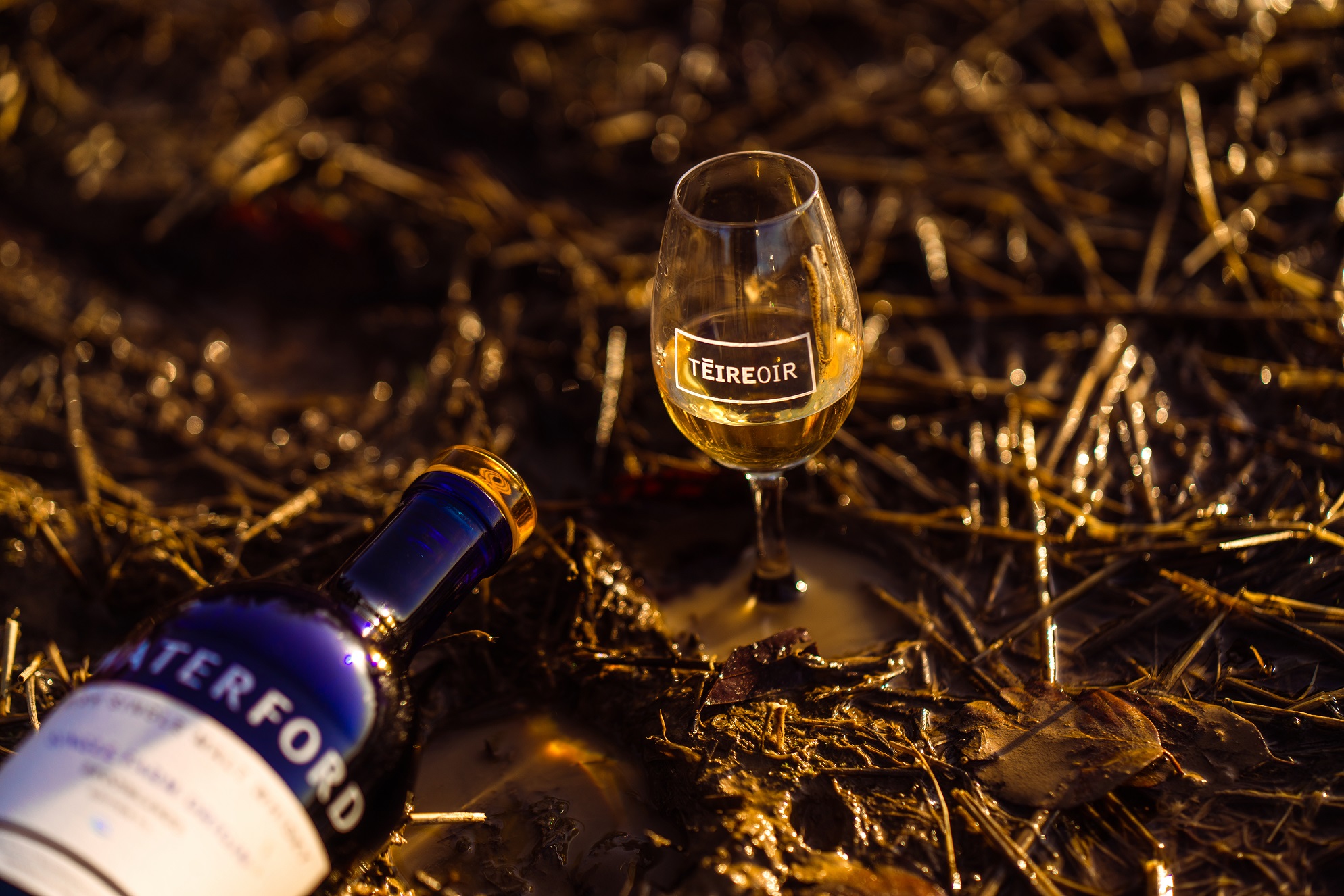
Up to now, you’ve been working on limited releases based on the batches of barley the distillery receives, will we ever see a “core range” from Waterford in the traditional sense?
The Waterford range is split four ways: Single Farm Origins; The Arcadian Series; The Cuvée; and Micro Cuvée. The Single Farm Origins demonstrate and rejoice in individuality, to compare and contrast. For any serious whisky fan these are fascinating bottlings, highly enjoyable in their own right, yet provocative to the more curious of mind. These are allocated to specific markets around the world in exclusivity. The Arcadian Series is our Alt-Barley, the Biodynamic, Organic, Heritage.
The Cuvée, like the Bordeaux first growths, is an assemblage - terroir by terroir - to achieve ultimate complexity. The Micro Cuvée is occasional, small scale and playful.
For those who don’t know – you were CEO of Bruichladdich for 12 years and oversaw a period of incredible growth and innovation there. How does making whisky in Ireland compare with making whisky in Scotland? What is different and what is the same?
There is no ‘tradition’ baggage acting like a lead weight on any one that dares to do their own thing, to refuse to conform to the industry stereotype. There is no industry cynicism; instead an eagerness, perhaps a touching naivety, a ‘why not?’. The glass is half full…
"The public view of Irish whisky is therefore monotone..."
It feels like Irish whiskey is still unchartered territory when it comes to the average consumer – most people don’t know that, unlike Scotland, Irish whisky production is dominated by a few large distillers bottling under different labels. Do you feel like Irish whiskey is on the cusp of something very exciting in terms of innovation what with the number of smaller distilleries being established?
60% of Scotch whisky is sold by two companies. In Ireland 80% is sold by one. Irish whisky is Jamesons; they are synonymous. But as we all know monopolies - for 25 years Irish Distillers was just that - are not healthy, stifling innovation, progress and variety. The public view of Irish whisky is therefore monotone. Conversely, the explosion of interest has led to an over enthusiasm, shall we say, leading to a confusion of a plethora of independent bottling labels sourcing the same spirit and genuine distillery brands, and some rather imaginative ones in-between. It’ll work itself out after a period of transition.
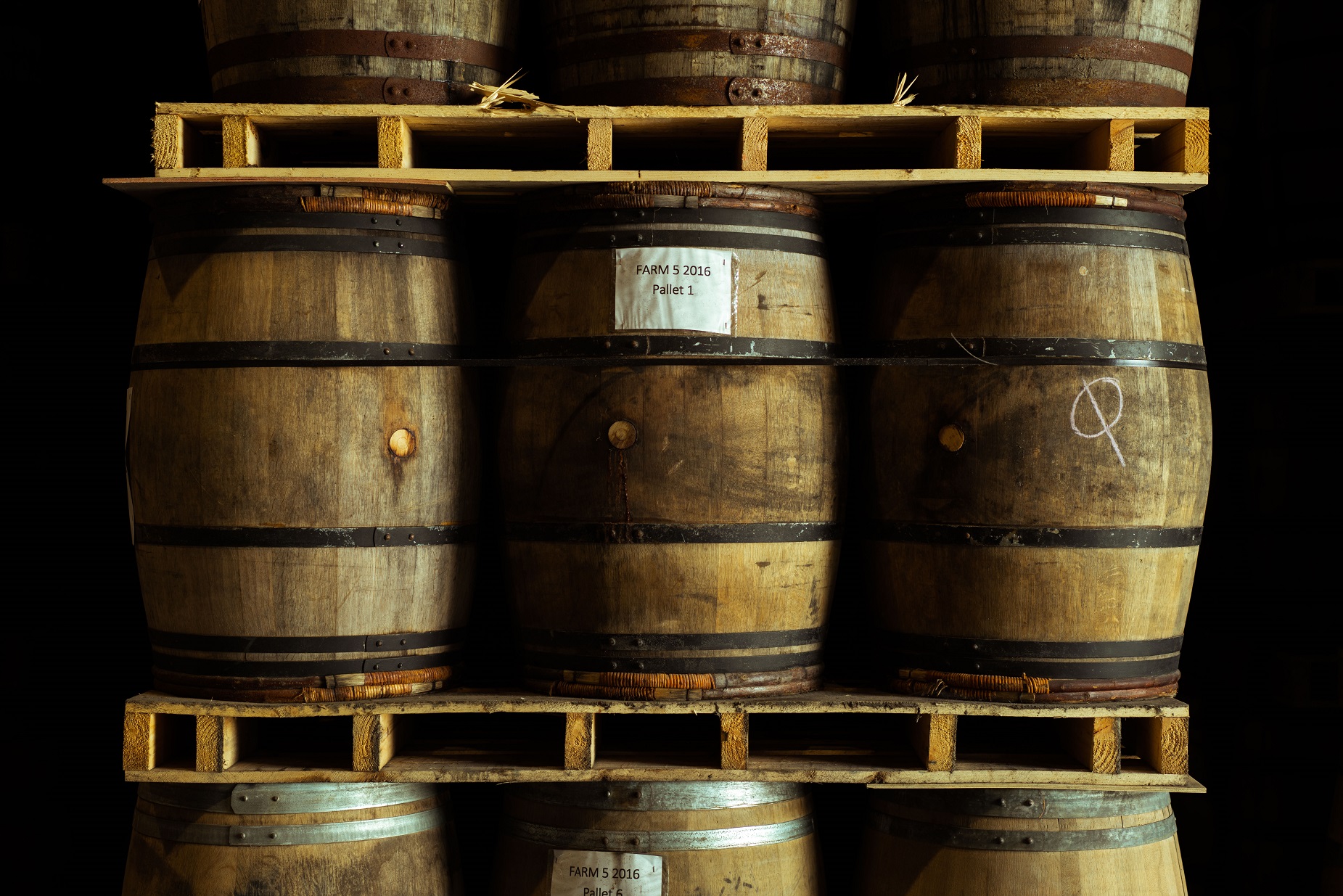
Saying you’re a busy man would be an understatement – can you tell us a little about Renegade Rum – the project you’re working on in Grenada?
Renegade Rum came out of a frustration from my independent rum bottling days: how can one make a rum as compelling as a single malt? Rum is made in 60 countries - where pretty much anything goes - most of it is made with a ubiquitous by-product, what’s left after sugar has been refined. If one is interested in provenance, there is very, very little to show in rum. I determined to do something about it: to have provenance in rum, clearly needs to be made with the primary raw ingredient, sugar cane. Renegade Rum was designed from the ground up to work with sugarcane only, farm by farm, terroir by terroir - and including ideas and concepts that I had learned at both Bruichladdich (built 1881) and Waterford (re-built in 2004 and 2015). It is a marvel of which I am most proud, with an extraordinary level of environmental compliancy. Its been incredible hard work to get this far - I now know why there are so few modern Caribbean distilleries - a lot of blood sweat and tears. Literally. The first Renegade Rum Single Farm Origin releases will be available in September, Pre-Cask.
Finally, when you’re not indulging in a glass of Waterford are there any other Irish whiskies that you enjoy?
When I am not drinking Waterford – and believe me it’s a devilishly moreish dram – I am a big red Burgundy fan, Alsace Riesling for white, Manzanilla for aperitif, Quarts de Chaume for sweet, and small grower Champagne for everything else.

